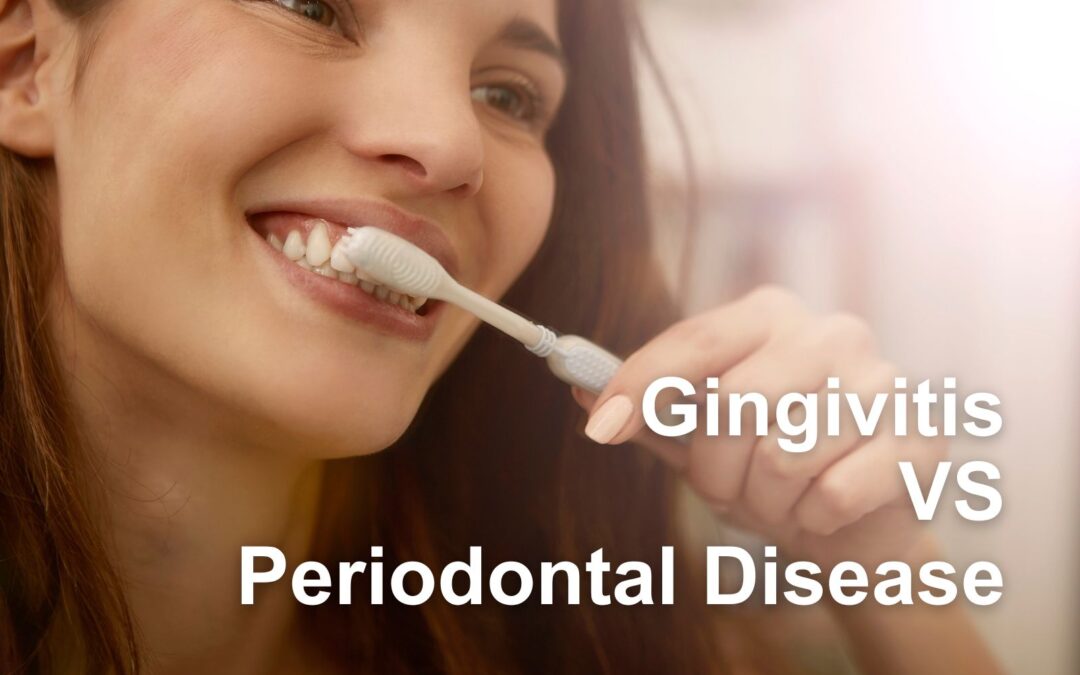Patients often worry that having gingivitis means they have periodontal disease. We’re here to dispel some of those worries and help you understand the differences between the two.
Yes, gingivitis and periodontal disease are related. Gingivitis is an early stage of periodontal disease, also known as gum disease. Gingivitis is much easier to reverse than the later stages of gum disease. If you don’t get treatment, it can progress to periodontal disease, which is the more severe stage of gum disease. In the beginning stages of periodontal disease, gum inflammation caused by plaque buildup is gingivitis. Plaque buildup is a sticky film from saliva, bacteria, and food particles.
We’re going to break down some signs and symptoms that can help you differentiate between gingivitis and periodontal disease:
Signs and Symptoms of Gingivitis:
- Red and swollen gums: Inflammation, a hallmark of gingivitis, leads to red and swollen gums.
- Bleeding gums: If your gums are inflamed, they may bleed, especially during brushing or flossing.
- Bad breath: Bad breath can be an early sign of gingivitis. It’s often referred to as halitosis.
- Tender gums: Gingivitis can also cause your gums to become sensitive to touch or pressure.
Signs and Symptoms of Periodontal Disease:
- Receding gums: As periodontal disease progresses, the gums start to separate from the teeth, leading to receding gums.
- Deep pockets: When your gums recede, deep pockets form between the teeth and gums. These pockets are a characteristic feature of periodontal disease. Healthy gums fit snugly around your teeth. But if you have periodontal disease, the attachment between your teeth and gums is compromised, which leads to pocket formation.
- Loose teeth: If periodontal disease progresses, your tooth can become loose. The inflammation of the supporting bone and tissue around the teeth causes damage.
- Changes in bite: In the advanced stages of periodontal disease, your teeth shift and change how they fit together.
If you’re worried that you have gingivitis or periodontal disease, schedule an appointment with one of our top Chicago dentists. They’ll do a thorough examination and recommend necessary steps and treatment. Our dentists can also assess the condition of your gums, measure pocket depths, and take X-rays to determine if you have any bone loss and the extent of it.
Early detection and proper treatment are vital to preventing gingivitis from progressing to periodontal disease. If caught early, gingivitis and periodontal disease can be reversed.
Regular dental check-ups, professional cleanings, and good daily oral hygiene practices at home can help prevent and manage gingivitis and periodontal disease.
If you have questions or concerns that you may have gingivitis or periodontal disease, you can call our office at 773-481-2200, we are here to help you schedule a consultation with one of our top Chicago Dentists. You can also schedule online.

